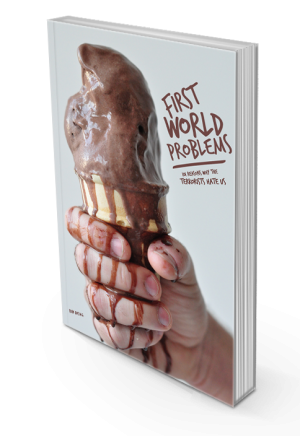Public speaking fascinates me. I hated giving speeches and presentations as a child up until high school when I had a class that forced me to give 7 speeches in a short time. My thinking of public speaking changed from something to fear to an opportunity to perform.
Initial Thoughts after Reading:
This was a fairly interesting read. Some of the stories were a bit long winded, but it had everything I was hoping for. Several real life stories, tips, techniques, what-t0-d0 when everything goes wrong, and a lot more nuggets of wisdom.
What I Learned:
Tension and release – Keeping people interested in what you’re saying has to do with building up tension then releasing it, then repeating. This is what good movies do as well as public speakers. Without some form of
Become a caffeinated version of yourself – To hold the interest of the audience, you’ll often have to become a more caffeinated or energetic version of yourself. This doesn’t mean you’re being in authentic or acting as someone else. You’re just putting a little extra effort into who you are.
Always end early – One of my biggest pet peeves of talks is when they go past the alloted time. Always. Always. Always end a little early.
Honesty is interesting – Few people are really honest, opinionated, and bleed in their talks. People crave honesty and opinions. They may disagree with some of your opinions, but at least they’ll think you’re interesting.
Favorite Quotes:
“Fear comes from what you imagine might happen instead of what actually is happening.”
“Great speakers are connection-makers, sharing an authentic part of themselves to create a singular, postive experience for the audience.”
“…when performing, perfection is boring. Tyler Durden, the quasi-hero from the film Fight Club, said to stop being perfect because obsessing about perfection stops you from growing. You stop taking chances, which means you stop learning. I don’t want to be perfect. I want to be useful, I want to be good, and I want to sound like myself. Trying to be perfect gets in the way of all three.”
“Good speakers usually find when they finish that there have been four versions of the speech: the one they delivered, the one they prepared, the one the newspapers say was delivered, and the one on the way home they wish they had delivered.” – Dale Carnegie
“I’ve never gotten over what they call stage fright. I go through it every show.” – Elvis Presley
“The body’s reaction to fear and excitement is the same…so it becomes a mental decision: am I afraid or am I excited?” – Ian Tyson
“Now I know I have to embody what I want the audience to be. If I want them to have fun, I have to have fun. If I want them to laugh, I have to laugh.”
“One unusual way to think about tough crowds is that a crowd has to be interested in you to hate you.”
“Most people say they’re afraid of performing for an audience, but this is bullshit. Unless you are living alone on a private island and have your groceries mailed to you, you have an audience every time you open your mouth. If ou can talk to your mom on the phone for an hour or have an all-night fight with your boyfriend, you know most of what you need to communicated. And you already know how to perform.”
The Verdict: 9.0/10 – Must Read (if you’re interested in improving your speaking skills)
Find it: Amazon.
